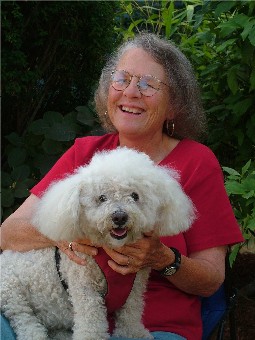Ultimately, Voluntary Simplicity is about choice. The word "voluntary" certainly suggests this. For something to be voluntary, you need to be making a choice. People think that Simplicity is about clearing out your clutter, but you must first define clutter. For instance, if you have too many clothes and want to get rid of some of them, you must make a choice, and you must develop criteria: you would want to keep things that fit, or things that you feel good in, or things that serve their purpose — like keep you warm.
We have to make choices in our everyday lives, of course, but these choices are becoming more and more narrow. It's the equivalent of choosing a brand of cereal — there are scads of choices, but the choices are essentially all the same.
In Simplicity, we are making choices in terms of their benefit to the well being of people and the planet. (What other criteria could there be?) In terms of the well being of people, you need a variety of experiences in order to make a choice. That's why we need the stories of people who have gone a different route. We need to know about the people who choose to live on less, who choose to live close to the land, who find enjoyment in community and creativity. If we don't know about them, they can't be part of our choice.
Tonight in our simplicity circle I thought of it another way. We were talking about technology and kids and how they text all the time, no matter what else they're doing. One man said that they don't allow a cell phone to be used in the house. No one can text. You can pick up the land line and call someone, but that's all.
What this father is giving his 12 year old son is a different experience.He can use his phone when he's away from the house, yes.The son is getting two kinds of experience in terms of his cell phone.
You could also say that he is broadening his experience. Essentially, he is giving his son the same experience he had as a boy. That was how most of us lived. We could only call someone on our phone so we probably spent more time with our families. Maybe by giving him the same experience, he is creating a stronger link between the two of them.
It's the same with television. There should be times when there is no television so that we have a different experience. If you don't know about the experience, you can't choose it!
I think we've lost a lot of our sense abilities that we once had. Like how the Polynesians found their way to Hawaii. Who has that navigational sense now? Or our ability to sing in tune or track animals. Or our ability to connect socially. If people don't see others faces or hear their voices (texting), they are missing out on learning to "read" people. They can't pick up the cues.
Or, perhaps texting is a more shallow method of communication. You aren't getting the voice or seeing the smile or hearing the laughter or anger. Will this mean that people's connection to each other is not as deep? Are young people making committments to have life time partners? Or will they stay on the surface. The person immersed in technology may always be looking for the new, new thing — they improved model, so they can never committ.
Maybe what we want is to give young people, actually all people, as many different kinds of experiences as possible so that they can make a richer choice. So, for instance, I wouldn't totally banish a television in the home, but have times when it's not on. For instance, the Sabbath: no interacting with technology. Do as low technology as can. Like orthodox Jews: don't drive, don't do any work, etc. This opens you to other experiences.
So it was a very interesting evening. We went from talking about knowing about the stories of people who choose an unconventional life style to actually giving people an unconventional life style. Our coming down to Palo Alto in the winter isn't really that unconventional, but it isn't exactly conventional, either. It all comes back to Thoreau: "And not, when I came to die, discover that I had not lived. I did not wish to live what was not life. I wanted to live deep and suck out all the marrow." How do you do that unless you have a variety of experiences?
Subscribe to:
Post Comments (Atom)




No comments:
Post a Comment